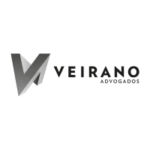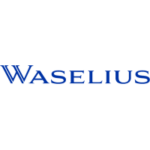-
Are there specific legal requirements or preferences regarding the choice of entity and/or equity structure for early-stage businesses that are seeking venture capital funding in the jurisdiction?
Ordinarily, there is no specific legal requirement that exists to direct the choice of entity and / or equity structure for early stage businesses that are seeking venture capital funding in Ghana. There are however preferences to be considered by early stage businesses that seek venture capital funding. This is by analysing the benefits and drawbacks that may be associated with the choice of entity and / or equity structure it intends to set up.
It is important for the venture capital space to understand the legal framework and preferences when seeking to invest. The choice of business entity you decide to incorporate in Ghana is critical for attracting venture capital investment. The main type of business entities in Ghana are:
- Private Limited Liability Company
- Public Liability Company
- Partnerships
- Sole Proprietorships
Private Limited Liability companies are the most preferred amongst venture Capitalists as it offers limited liability protection to shareholders, flexibility in ownership as the company can issue shares which allows investors to acquire equity stakes in exchange of capital. Venture Capitalists are also attracted to Private Limited Liability Companies due to its governance structure as they are governed a board of directors and shareholders as Venture Capitalists want oversight and control.
Venture capital investors prefer to invest through preference shares which come with special rights such as: priority dividends, liquidation preference and anti-dilution protections. Startups in Ghana generally incorporate as private companies limited by shares under the Companies Act, 2019 (Act 992). Some startups establish offshore holding companies in investor-friendly jurisdictions like Delaware (USA) or Mauritius for tax advantages and access to international funding. Ghana is also considering a Limited Partnership (LP) Act to provide a more attractive structure for venture capital funds.
Public liability companies, partnerships, and sole proprietorships are less favored for venture capital due to regulatory restrictions and governance concerns.
In effect, early stage businesses seeking venture capital funding in Ghana have the preserve to decide on the choice of entity and / or equity structure it seeks to establish but must be guided by both the legal framework and the investor preferences that exist within the jurisdiction.
-
What are the principal legal documents for a venture capital equity investment in the jurisdiction and are any of them publicly filed or otherwise available to the public?
In a venture capital equity investment in Ghana, the principal legal documents typically include, but not limited to:
Term Sheet – A non-binding document outlining the key terms and conditions of the investment.
Subscription Agreement – Governs the investor’s purchase of shares in the company.
Shareholders’ Agreement – Defines the rights and obligations of investors and existing shareholders, including governance, voting rights, transfer restrictions, and exit provisions.
Investment Agreement – Covers details of the investment, conditions precedent, warranties, and obligations of both parties.
Due Diligence Reports – Legal, financial, and operational reports conducted before finalizing the investment.
Company’s Constitutional Documents (Regulations or Constitution) – The governing rules of the company as filed with the Office of the Registrar of Companies.
Board Resolutions & Consents – Formal approvals from the company’s board and shareholders.
Exit Agreements (if applicable) – Documents like a Share Purchase Agreement or Initial Public Offering (IPO) agreements outlining potential exit strategies.
Some documents such as the company’s constitution and incorporation details must be filed with the Office of the Registrar of Companies (ORC) and are accessible to the public upon request. Regulatory approvals if required from institutions such as Bank of Ghana or the Securities and Exchange Commission may be referenced in public records.
-
Is there a venture capital industry body in the jurisdiction and, if so, does it provide template investment documents? If so, how common is it to deviate from such templates and does this evolve as companies move from seed to larger rounds?
Yes, Ghana has a venture capital industry body. The Venture Capital Trust Fund (VCTF) is a government-sanctioned institution that supports venture capital development in the country which was set up by the Venture Capital Trust Fund Act, 2004 (Act 680). The objective of the Venture Capital Trust Fund is to provide financial resources for the development and promotion of venture capital financing for Small and Medium Enterprises (SME) in specified sectors of the Ghanaian economy.
Also, there is the Ghana Venture Capital and Private Equity Association (GVCA) which serves as a body promoting venture capital and private equity investments in Ghana. The body advocates on behalf of its members such as firms, institutional investors and professional service entities to influential stakeholders, including government agencies, media and other relevant organizations.
The Venture Capital Trust Fund does not provide for template investment documents. While these bodies support the industry, they do not provide standard investment templates. Most transactions rely on adapted international templates, such as those from the National Venture Capital Association (NVCA, US) or the British Private Equity & Venture Capital Association (BVCA, UK). Early-stage deals tend to use simplified standard agreements, but later-stage investments involve highly customized contracts.
GVCA plays an advocacy role for investors, firms, and institutional bodies, working closely with government agencies to promote favorable venture capital
-
Are there any general merger control, anti-trust/competition and/or foreign direct investment regimes applicable to venture capital investments in the jurisdiction?
Yes, Ghana has merger control, anti-trust/competition and foreign direct investment (FDI) regimes and frameworks that apply to venture capital investments except that these cannot be referenced from a single source. Laws that govern merger control, anti- trust / competition and FDIs cut across various legislations and not outlined in a single or generalized investment regime depending on the nature and size of the transaction. If the investment amounts to a change of control of the target company, it may trigger regulatory approvals. There are also sector specific mergers such as banking, telecommunication which often require prior approval from their respective regulators. The Ghana Investment Promotion Centre (GIPC) Act, 2013 (Act 865) and the Companies Act, 2019 (Act 992), the Securities and Industry Act , 2016 (Act 930) also regulate mergers and acquisitions.
Ghana has enacted the Protection Against Unfair Competition Act, 2000 (Act 589) which regulates the competition amongst businesses as well as sector specific laws.
Ghana is also a signatory to the African Continental Free Trade Area (AfCFTA) Agreement and has further ratified it to make it legally binding. The Agreement as part of its Competition Policy Protocol seeks to promote fair competition, encourage transparency, protect consumers and prevent monopolistic practices Hence, Venture capital firms operating within the jurisdiction may be required to familiarise themselves with these laws when seeking guidance on anti-trust / competition laws.
Foreign venture capital firms must comply with the Ghana Investment Promotion Centre Act, 2013 (Act 865) in terms of registration and minimum capital requirements when investing in Ghana. The registration of the foreign venture capital firm confers on the foreign venture capital firm with some investment protection and incentives. There are certain sectors which provide for minimum capital requirements. For joint ventures, i.e. foreign and Ghanaian partners, the minimum capital requirement is Two Hundred Thousand Dollars ($200,000). Where the business is to be wholly foreign-owned, the minimum requirement is Five Hundred Thousand Dollars ($500,000). Where the foreign company seeks to undertaking a trading business in Ghana, the minimum requirement is One Million Dollars ($1,000,000) with at least twenty percent (20%) Ghanaian ownership.
-
What is the process, and internal approvals needed, for a company issuing shares to investors in the jurisdiction and are there any related taxes or notary (or other fees) payable?
The issuance of shares by a Ghanaian company follows a structured process which varies depending on whether the company is a private or public entity. The process is as follows:
Shareholders’ Approval (if required): If the issuance is under a pre-emptive rights framework, existing shareholders must be given the right of first refusal. To wit, the right to purchase new shares before they are offered to external investors.
Board of Director’s approval: The Board must approve the issuance of shares, either under an existing authorised share capital or by amending the capital structure. A board resolution is passed to approve the issuance, pricing and terms of the new shares.
Legal Documentation: The prospective investor will sign a nondisclosure agreement (NDA), necessary agreements and documentation such as information memorandum, terms sheet, share description agreement, the shareholders agreement and deed of share transfer must be prepared and executed. Where there are some documents which originate from outside Ghana, these documents may require notarisation and authentication from the originating country.
Filing and compliance: Regulatory filing with the necessary institutions is mandatory. Where the issuance results in a change in shareholding, the company must update its Register of Members and file the relevant changes with the Office of the Registrar of Companies. In the instance the investor is foreign, the investment must meet the minimum capital requirements and be registered with the GIPC to qualify for investment protections. If the company is a public company, it may need approval from Securities and Exchange Commission (SEC).
Issuance of share certificates: Once payments are received, the company issues share certificates to the investors. The Shareholder’s Register is to be updated to reflect the new ownership structure.
Taxes: A duty on stamping is to be paid on share transfers but not on newly issued shares. Capital gains tax does not apply to newly issued shares but only applies to the sale of existing shares.
Applicable taxes and fees:
Stamp Duty: 1% of the investment amount.
Capital Gains Tax: 15% (applicable when shares are later sold at a profit).
RGD Filing Fees: Required for share allotment registration.
Notarisation is generally not required, except for foreign investors who may need document authentication. Foreign investors must comply with the minimum capital requirements set by GIPC and, where applicable, obtain approval from SEC.
-
How prevalent is participation from investors that are not venture capital funds, including angel investors, family offices, high net worth individuals, and corporate venture capital?
Investment participation in Ghana from beyond venture capital funds, including angel investors, family offices, high net worth individuals and corporate venture capital is growing, though it remains in the developmental stages. In 2011, Ghana Venture Capital Trust Fund established the Ghana Angel Investor Network (GAIN) to promote angel investing as a way of providing long-term and cheaper capital to support the establishment and growth of early-stage businesses in Ghana. GAIN is the first angel investor network in Ghana and aims to promote angel Investing as an alternative form of financing business start-ups in Ghana. As of 2016, GAIN had a network of 25 angel investors. In 2021, Impact Investing Ghana, the Ghana National Advisory Board for Impact Investing took over hosting of the GAIN secretariat.
Prominent Ghanaian investors have been actively supporting creative industries and start-ups.
Family offices: Specific data on family office activities in Ghana is limited, the global trend shows a growing interest from family offices in alternative investments including start-ups.
Corporate Venture Capital: Corporations are increasingly investing in or acquiring smaller companies through internal mergers and acquisitions teams or dedicated venture capital firms.
-
What is the typical investment period for a venture capital fund in the jurisdiction?
Ghana follows the global trend of a prospective lifespan of an investment which is 8-12 years. The typical investment period for venture capital funds in Ghana aligns with global industry trends. However, the maturity of the investment depends on multiple factors, including market conditions, business performance, and sector-specific growth dynamics.
A standard venture capital fund operates in three phases:
Investment Phase (Years 1–5): The fund actively invests in startups and portfolio companies.
Growth and Value Creation (Years 5–8): Companies scale, and investors provide strategic guidance to increase valuation.
Exit Phase (Years 8–12): Investors exit via secondary sales, mergers, acquisitions, or, in rare cases, initial public offerings (IPOs).
Some investors may extend the investment period if liquidity events, such as acquisitions or secondary buyouts, are delayed.
-
What are the key investment terms which a venture investor looks for in the jurisdiction including representations and warranties, class of share, board representation (and observers), voting and other control rights, redemption rights, anti-dilution protection and information rights?
Venture investors in Ghana, like those globally, negotiate key investments terms to protect their interests and maximise returns and the terms of the negotiation could vary depending on factors such as the bargaining power of the companies, the stage of the investee company amongst others. Below are some of the key investments terms which investors look out for:
Class of shares: Investors prefer preference shares over common shares, giving them priority in dividends and liquidation events. These may include participating or non-participating preference shares, depending on the deal structure.
Board representation: Investors typically negotiate for board seats to influence decision making. If they are unable to secure a board seat, they may request board observer rights, allowing them to attend meetings without voting power.
Voting & Control Rights: Investors may require veto rights on key decisions, such as issuance of new shares; approval budgets and major expenses; mergers, acquisitions or liquidation; executive hiring and compensation changes.
Redemption Rights: Investors may seek the right to force a buyback of their shares after a certain period if an exit has not occurred.
Information rights: Investors require access to financial reports, operational updates, and governance information to monitor performance. There are often quarterly or annual reporting requirements.
Warranties: These are statements made by the company concerning its legal standing, finances, and operations. These are warranties that help the investors make informed decisions as to whether or not to carry on or go ahead with their investments in the company.
Anti-dilution protection: Dilution occurs when the percentage or investment of an investor in a company dwindles due to an increase in the total number of shares outstanding. Anti-dilution protection provisions or clauses are implemented to help shield investors from their investments potentially losing their investment value.
-
What are the key features of the liability regime (e.g. monetary damages vs. compensatory capital increase) that apply to venture capital investments in the jurisdiction?
In Ghana, the liability regime for venture capital investments is primarily governed by contract law, corporate law and investment agreements. The key liability features include:
Monetary Damages: The primary remedy for breaches of contract is monetary damages. Courts or arbitrators award compensatory damages which seek to cover the direct losses suffered by the investor. Liquidated damages clauses may be included in investment agreements to specify pre-agreed penalties.
Compensatory Capital Increase: Another method of compensating damages incurred by an investor as a result of misrepresentations or breaches of warranties is a compensatory capital increase. The existing shareholders agree that the company’s share capital should be increased for the benefit of the new investor or investors.
Indemnification obligations: Investors often require indemnities from the company for specific risks such as tax liabilities, regulatory penalties or undisclosed debts of which these liabilities will be borne by the company. Some of these indemnities can be capped or uncapped depending on the outcome of the negotiations.
Personal liability of founders and directors: Liability of founders and directors depend on the type of entity that is seeking the investment. In the instance the entity is either a partnership or sole proprietorship, the partners or the founders bear all the liabilities that the entity incurs. Where the entity is a private limited liability company, the liability is placed on the company unless the liability is to be borne by the agents of the company such as the directors, company secretary amongst others. Some of these instances where the liability stretches onto the founders or directors are fraud or fraudulent misrepresentation and breaches of fiduciary duties.
Dispute resolution mechanisms: Venture capital agreements often include arbitration clauses which seeks to resolve any issues arising out of or related to the venture capital agreement.
-
How common are arrangement/ monitoring fees for investors in the jurisdiction?
In terms of arrangement fees, these fees are paid in furtherance of obtaining legal advice, cover due diligence fees and structuring expenses. Typically, these vary depending on the fees that are requested by the firms offering these services.
Monitoring fees are also paid for by the investor to ensure that he/she or its investment grows. Monitoring fees are usually charged by the outfit undertaking the oversight activities of the investee company and such fees vary based on the firm’s fees. Venture capital investors in Ghana typically incur the following fees:
Management Fees: Generally range from 2% to 2.5% of the total fund size per year, covering administrative and operational expenses of the fund.
Carried Interest: Typically around 20% of profits above a set return threshold (e.g., an 8% preferred return to limited partners).
Due Diligence Fees: Investors often pay legal, financial, and operational due diligence costs, which vary depending on the transaction size.
Monitoring Fees: Some funds charge an annual monitoring fee (often 1% to 2% of invested capital) to oversee portfolio company performance.
These fees align with standard venture capital practices worldwide, with adjustments based on fund size, industry, and investor agreements.
-
Are founders and senior management typically subject to restrictive covenants following ceasing to be an employee and/or shareholder and, if so, what is their general scope and duration?
Yes, there are restrictive covenants which are inculcated in the employment contract of founders and senior management staff which prevent them from starting or joining a competing business for a specified period after leaving the company. The terms of these restrictive covenants are regulated and streamlined by the general laws on restrictive covenants in contract law. The scope of the restrictive covenant relates to the activities of the company for which the founder or senior management staff is leaving. The duration also depends on the negotiation that arise. The scope and duration restrictions are to be entirely reasonable and if the terms are onerous, the courts would not back same. These covenants are typically included in employment contracts, shareholder agreements, and investment agreements to protect investor interests. Common restrictive covenants include:
Non-Compete Clauses: Prevent founders and key executives from starting or joining competing businesses for a specified period post-exit.
Non-Solicitation Agreements: Restrict departing founders from poaching key employees, customers, or suppliers.
Confidentiality Agreements: Ensure founders and senior executives do not disclose sensitive company information.
Intellectual Property (IP) Assignment: Ensures that all IP created by founders and employees while working at the company remains the property of the company.
These restrictions must be reasonable in duration, geographic scope, and applicability. Overly broad restrictions may be unenforceable under Ghanaian contract law.
-
How are employees typically incentivised in venture capital backed companies (e.g. share options or other equity-based incentives)?
Employees in venture capital backed companies are typically incentivised through a combination of equity-based incentives and cash-based performance rewards. Share-based compensation is gradually gaining influence in Ghana.
Cash-based compensation: These are based on performance bonuses tied to revenue, profitability or key milestones and commission structures which is common in sales-driven roles.
Equity based incentives: Employees are granted the right, but not an obligation, to purchase shares in the company at a predetermined and discounted price after a vesting period. Employees in venture capital-backed companies are typically incentivised through equity-based incentives and cash-based performance rewards. Key incentive structures include:
Stock Options: Employees receive the right to purchase company shares at a set price after a vesting period.
Restricted Stock Units (RSUs): Employees are granted shares that vest over time or based on performance milestones.
Profit-Sharing Bonuses: Cash bonuses tied to company profitability and revenue targets.
Commission-Based Incentives: Particularly common in sales-driven roles, providing additional earnings based on performance.
Share-based compensation is increasingly popular in Ghana, particularly in tech startups and companies positioning for future exits or public offerings.
Overall, these incentives offered employees in venture capital companies have the potential to ensure that employees in key positions are retained over a longer period, preserve institutional memory and guarantee utmost efficiency on the job.
-
What are the most commonly used vesting/good and bad leaver provisions that apply to founders/ senior management in venture capital backed companies?
Vesting schedules and good/bad leaver provisions are key mechanisms used to align incentives and protect investors’ interests. These provisions ensure that founders and senior management remain committed while penalising premature departures or misconduct.
Vesting schedules determine how and when founders/senior executives earn their equity. Time-based vesting which is the standard mode covers a period of 4 years with no shares vested in first year and after that the shares vest monthly or quarterly.
Leaver provisions determine what happens to a founder’s equity if they leave. The good leaver typically covers death, disability or long-term illness, mutually agreed resignation after fulfilling commitments and retirements. The vested shares may be retained. The company may sell unvested shares at fair market value or nominal value (if negotiated).
Bad leaver provisions cover instances of resignation before agreed period, breaching the non-compete agreement, fraud, gross misconduct or breach of fiduciary duty. The unvested shares are usually forfeited, force sale of vested shares under the market value.
Founder vesting & investor protections: Reverse vesting requires founders to vest their own shares over time ensuring long-term commitment.
-
What have been the main areas of negotiation between investors, founders, and the company in the investment documentation, over the last 24 months?
Over the last 24 months in Ghana, the main areas of negotiation between investors, founders and companies in venture capital (VC) and private equity deals have centred around control rights, valuation, liquidation preferences, and exit strategies.
Liquidation preferences: Liquidation processes determine the manner or method by which the proceeds are distributed in the event of liquidation or exit of which investors strongly negotiate preference in this regard. The investors demand liquidation preference to secure priority returns in the case of exit or failure.
Board representation and control rights: Investors typically negotiate for at least one board seat or observer rights. Founders seek to limit investor veto rights, especially on hiring/firing executives, raising debt, or approving budgets. Investors often insist on veto powers over major decisions such as mergers and acquisitions, new financing rounds, or changing business models.
Founder vesting & leaver provisions: Reverse vesting for founders which requires the founders to invest in the company to ensure the founders long term commitment. Good leaver and bad leaver provisions are heavily negotiated especially regarding the ability to retain vested shares and repurchase price of share upon exit.
Valuation: Investors push for lower valuations due to economic uncertainty while founders seek higher minimise dilution. Negotiations focus on pre-money vs. post-money valuation and methods.
Anti-dilution protection: Investors insist on broad-based weighted average anti-dilution clauses, ensuring they maintain value in future down rounds. Founders try to avoid full-ratchet anti-dilution, which harshly penalizes them in case of lower valuation in future rounds.
Information and reporting rights: Investor demand quarterly financials, budgets, and performance reports to track company progress. Founders negotiate for lighter reporting obligations, especially in early-stage startups.
Regulatory and compliance risks: With the increased government oversight especially fintech regulation, tax compliance, investors demand stronger warranties and indemnities from founders. The negotiations cover who bears the cost of regulatory fines and who takes responsibility for compliance risks.
-
How prevalent is the use of convertible debt (e.g. convertible loan notes) and advance subscription agreement/ SAFEs in the jurisdiction?
The use of convertible debt instruments such as Convertible Loan Notes, advance has been prevalent in Ghana. Convertible debt is a loan or a credit to the investee company from the investor where the parties enter into the agreement with the intent to repay all the or part of loan or credit by converting it into a certain number of its preferred or common shares in the future. The debt is usually in the form of a debenture or a series of debentures or debenture stocks.
The investee company usually issues out a debenture which is a written acknowledgment of the investee company setting out the terms and conditions of the loan agreement. The acquisition of the convertible debt by the investee company depends on the creditworthiness, the ability to provide collateral, cash flow projections, and short-term liquidity/profitability amongst others. The debenture must be registered for it to be enforceable.
Convertible instruments are attractive to both startups and investors as they delay valuation discussions and provide flexible financing options. However, legal clarity on enforceability and investor protections continues to evolve in Ghana’s regulatory landscape.
ASAs and SAFEs arrangements are evolving and gradually being adopted into the venture capital industry in Ghana, but at a slow pace. The obvious reason being that, there are no explicit legislations regulating such arrangements. This poses a challenge for most investors in startups because enforceability becomes a frustrating task when the need arises. An investor may have to comb through a wide array of laws to enforce his rights under such agreements. as to the use of advance subscription agreements or simple agreement for future equity (SAFEs) in Ghana.
-
What are the customary terms of convertible debt (e.g. convertible loan notes) and advance subscription agreement/ SAFEs in the jurisdiction and are there standard from documents?
Some of the common key terms found in convertible debt instruments are as follows:
Interest rates: Indicates the rates at which the principal amount of the debt will be paid until repayment or conversion.
Conversion: This indicates when the debt will be converted into equity for the investor.
Maturity period: This outlines the date which the debt will be materialise into equity for the investor.
Security: This outlines what property was used to secure the debt by the investee company.
Discount Rate: To compensate for the high risk in investing in early stage businesses, investors are offered some reasonable discount on the valuation of their shares at conversion.
Unfortunately, there are no sample documents or templates for convertible loan notes, advanced subscription agreements and SAFE agreements in Ghana but templates can be acquired from law firms, industry associations and online platforms. However, these agreements must conform to corporate Ghanaian laws.
-
How prevalent is the use of venture or growth debt as an alternative or supplement to equity fundraisings or other debt financing in the last 24 months?
Venture debt being a loan offered to startups as capital to scale up their products or services and pay back with high interest is gaining prevalence in Ghana as the startups do not have to give up ownership of their company and all the startups have to do is to payback the lenders with their return on investments. Venture debt is mainly provided for by venture debt firms, specialised banks, and private investment firms. Entrepreneurs in Ghana are beginning to opt for flexible financing options which include venture debt to support their business ideas model and rapid growth. This increase in the last 12-24 months is due to the tech-driven innovations and a youthful population which seek flexible capital structures and options. Venture debt is gaining traction in Ghana as an alternative to equity financing, particularly among growth-stage startups that seek non-dilutive capital. While still less common than traditional venture capital, venture debt is increasingly used in:
Fintech and Tech Startups: Companies with predictable revenue streams leverage venture debt to scale without immediate equity dilution.
Growth-Stage Businesses: Startups that have raised Series A or B rounds use venture debt as bridge financing before larger equity raises.
Revenue-Based Financing: Some lenders offer venture debt tied to a company’s revenue performance rather than fixed repayment terms.
Ghanaian startups seeking venture debt typically secure funding from specialized banks, development finance institutions, and international lenders.
-
What are the customary terms of venture or growth debt in the jurisdiction and are there standard form documents?
Interest rates: The interest rates are usually higher than those offered by the traditional banks usually rating from 10 to 18% per annum due to the risks involved in investing in startups and the interest rates are imposed based on the market conditions.
Repayment options and terms: These are negotiated between the parties to ascertain the mode of repayment, i.e. payment in kind, balloon payments, conversion to equity, and the period of repayment.
Security: These are mostly unsecured, but lenders require debentures or revenue-based security, or limited collateral in intellectual property or inventory.
Covenants: Promises or commitments made by the startup to protect the lender in the case or irresponsibility.
There are no standard documents for venture or growth debt documents or templates readily available in Ghana however, these can be accessed from online platforms, investment firms and law firms.
-
What are the current market trends for venture capital in the jurisdiction (including the exits of venture backed companies) and do you see this changing in the next year?
Ghana’s venture capital landscape has experienced notable shifts in recent years influenced by both regional and global trends. Between 2008- 2023, the number of fund management companies in Ghana expanded from 6 to 68, managing 72 funds. This growth corresponds to an average annual increase of 23% in assets under management, reaching $6.93 billion in 2023. Notably, regional African funds hold 78% of these total assets under management.
The venture capitalists have predominantly targeted tech-driven startups addressing local challenges, with sectors like fintech, agritech, and e-commerce attracting significant attention.
Venture capital and private-equity backed businesses have generated over 44,000 direct jobs by 2023, with women comprising 54% of the workforce.
Venture Capital Exits: In May, 2024 Adenia exited its investment in Outdoor Holdings Limited, the parent company of DDP Outdoor Ltd, a leading out-of-home advertising firm in Ghana to Injaro Ghana Venture Capital Fund. Africa’s venture capital ecosystem has been faced with challenges with startups finding it difficult to acquire investors.
Outlook for the next year: With the rise of startups in Ghana and the continuous improvement to Ghana’s legislation, there is the likelihood of an increase in venture capital and the awareness of the existence of venture capital.
Ghana’s funding environment is expected to grow further, with fintech and climate-tech remaining key investment areas.
There is likely to be more structured financing rounds due to currency volatility and increased participation from regional and international funds as well as continued dominance of acquisitions as the primary exit strategy, with IPOs remaining rare.
-
Are any developments anticipated in the next 12 months, including any proposed legislative reforms that are relevant for venture capital investor in the jurisdiction?
Ghana’s venture capital landscape is poised for significant developments in the coming year, driven by anticipated legislative reforms and strategic initiatives aimed at enhancing the investment ecosystem. There are current bills before Parliament which seek to boost and increase the emergence of startups and provide benefits to investors both foreign and domestic. These are the provisions of initiatives to the Venture Capital Trust Fund, a law that seeks to regulate the framework of startups and innovation in Ghana.
In the recent budget that was read on the floor of Parliament, the Ministry of Finance has issued guidelines emphasizing investment promotion to attract strategic investments and boost foreign direct investment, positioning Ghana to capitalize on the African Continental Free Trade Area (AfCFTA).
Ghana Startup Bill (Innovation and Startups Act): Expected to be passed soon, seeks to provide tax incentives, funding access, and regulatory support for startups.
Amendment to the GIPC Act: The amendment aims to remove or reduce minimum capital requirements for foreign investors, making Ghana more attractive for VC funding and also create some appreciable level of harmony between the GIPC Act and other recent legislations such as the Exemptions Act, 2022.
Competition and Fair Trade Practices Bill: This law will introduce antitrust regulations and merger control policies, affecting M&A activities.
Bank of Ghana Fintech Regulations: Expected refinements in fintech licensing, digital lending, and cryptocurrency oversight.
Venture Capital Trust Fund (VCTF) Enhancements: The government plans to increase funding and create new financing mechanisms to support early-stage startups.
AfCFTA Integration: Policies are being developed to help Ghanaian startups expand regionally under the African Continental Free Trade Area framework.
These anticipated developments reflect Ghana’s commitment to creating a more investor-friendly climate, which is expected to positively influence venture capital activities in the country over the next year.
Ghana: Venture Capital
This country-specific Q&A provides an overview of Venture Capital laws and regulations applicable in Ghana.
-
Are there specific legal requirements or preferences regarding the choice of entity and/or equity structure for early-stage businesses that are seeking venture capital funding in the jurisdiction?
-
What are the principal legal documents for a venture capital equity investment in the jurisdiction and are any of them publicly filed or otherwise available to the public?
-
Is there a venture capital industry body in the jurisdiction and, if so, does it provide template investment documents? If so, how common is it to deviate from such templates and does this evolve as companies move from seed to larger rounds?
-
Are there any general merger control, anti-trust/competition and/or foreign direct investment regimes applicable to venture capital investments in the jurisdiction?
-
What is the process, and internal approvals needed, for a company issuing shares to investors in the jurisdiction and are there any related taxes or notary (or other fees) payable?
-
How prevalent is participation from investors that are not venture capital funds, including angel investors, family offices, high net worth individuals, and corporate venture capital?
-
What is the typical investment period for a venture capital fund in the jurisdiction?
-
What are the key investment terms which a venture investor looks for in the jurisdiction including representations and warranties, class of share, board representation (and observers), voting and other control rights, redemption rights, anti-dilution protection and information rights?
-
What are the key features of the liability regime (e.g. monetary damages vs. compensatory capital increase) that apply to venture capital investments in the jurisdiction?
-
How common are arrangement/ monitoring fees for investors in the jurisdiction?
-
Are founders and senior management typically subject to restrictive covenants following ceasing to be an employee and/or shareholder and, if so, what is their general scope and duration?
-
How are employees typically incentivised in venture capital backed companies (e.g. share options or other equity-based incentives)?
-
What are the most commonly used vesting/good and bad leaver provisions that apply to founders/ senior management in venture capital backed companies?
-
What have been the main areas of negotiation between investors, founders, and the company in the investment documentation, over the last 24 months?
-
How prevalent is the use of convertible debt (e.g. convertible loan notes) and advance subscription agreement/ SAFEs in the jurisdiction?
-
What are the customary terms of convertible debt (e.g. convertible loan notes) and advance subscription agreement/ SAFEs in the jurisdiction and are there standard from documents?
-
How prevalent is the use of venture or growth debt as an alternative or supplement to equity fundraisings or other debt financing in the last 24 months?
-
What are the customary terms of venture or growth debt in the jurisdiction and are there standard form documents?
-
What are the current market trends for venture capital in the jurisdiction (including the exits of venture backed companies) and do you see this changing in the next year?
-
Are any developments anticipated in the next 12 months, including any proposed legislative reforms that are relevant for venture capital investor in the jurisdiction?













